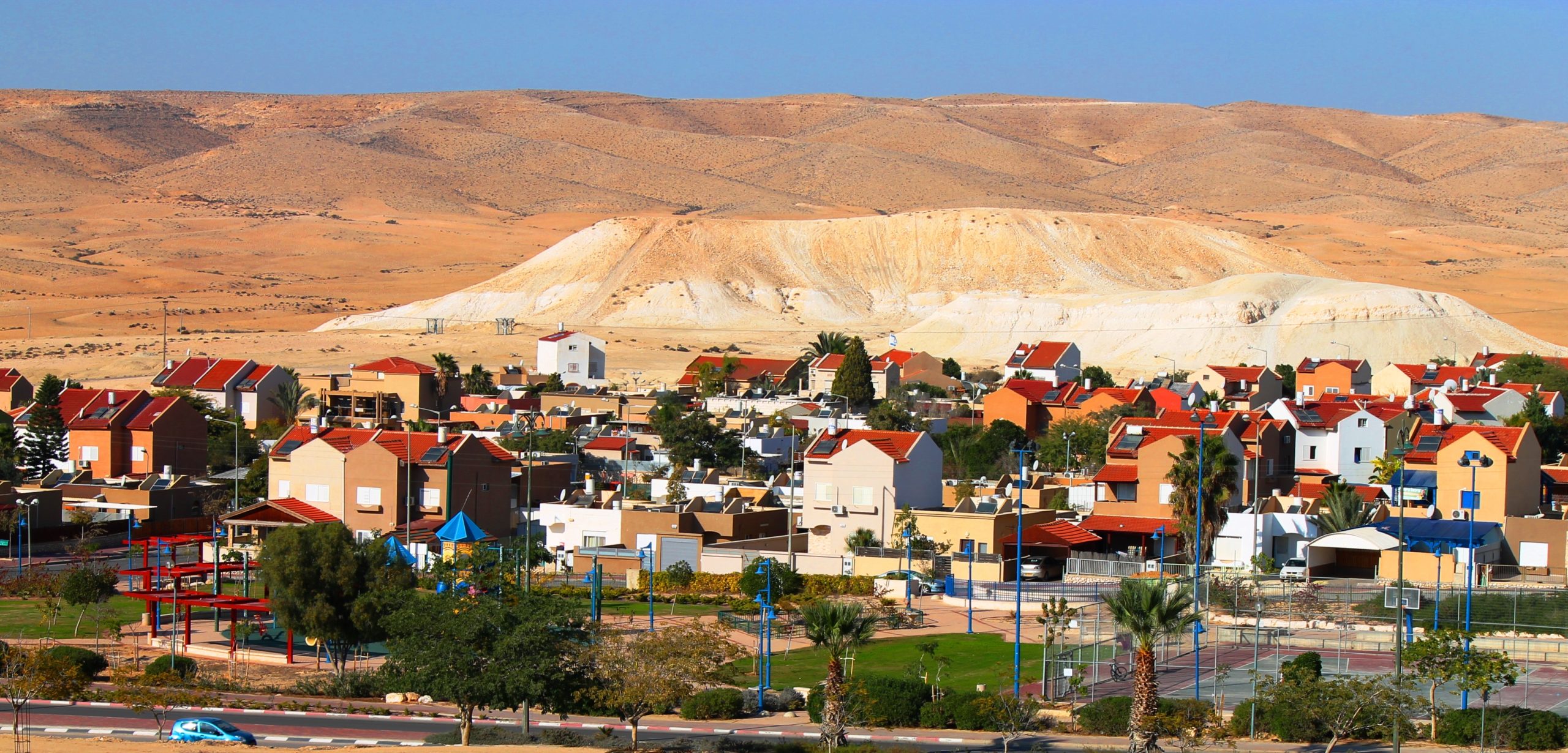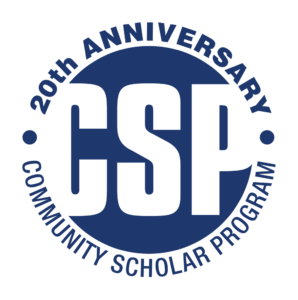
- This event has passed.
Tastes and Sounds of Yeroham Multi-Cultural Mecca in the Negev Desert
Tuesday, July 6, 2021 @ 10:00 am - 11:00 am
An event every week that begins at 10:00 am on Tuesday, repeating until Tuesday, July 20, 2021

Join us for a special 3-part summer virtual visit with some of the amazing communities and personalities of the Negev desert town of Yeroham. Modern Yeroham was founded on 9 January 1951 as Ma’aberet Tel Yeroham (Hebrew: מעברת תל יְרֻחָם), a transit camp for new immigrants, and became one of Israel’s first development towns, created to settle frontier areas in the early days of the state. It was located near the Yeroham Makhtesh (formerly: Large Makhtesh), an area that supplied natural resources for paving roads and construction. The first influx of olim (Jewish immigrants) came from Romania, many of them Holocaust survivors, followed by immigrants from North Africa, Persia, India and elsewhere, who make up the majority of the town’s population. Since autumn 1990, Yeroham has actively been involved in absorbing hundreds of olim from the Former USSR, who came to comprise 25% of the town’s nearly 12,000 residents.
The “Bnei Israel” Indian Jewish community in Yeroham
Tuesday July 6, 2021
The “Bnei Israel” are a very ancient Jewish community in India, which traces its roots to the First Temple Period and the exile of the tribes from the Kingdom of Israel (8th century BCE). Immigrants from India began arriving in Yeroham in 1954, with larger waves of immigration coming in the late 1950s and 1970s. Not by chance was the first synagogue building in the State of Israel for this community built in Yeroham in 1962: “Sha’arei Rahamim”. The special relationship Bnei Israel Jews have with Elijah the Prophet is epitomized in the Malida ceremony – whose center is the compilation of a tray of symbolic fruits, nuts, grains and spice.
We will visit the Bnei Israel synagogue, watch how the Malida tray is prepared, listen to some traditional and new Indian Jewish songs with the “Raga Tunes” band, and hear how two women – Latvian-born and Indian-born – cook up wonderful dishes together in Yeroham’s commercial center.
People we will meet include: Igal Dan, manager of the “Raga Tunes” band, teacher, and master percussionist; one of the leaders of the Bnei Israel community in Yeroham, preserver of traditional Indian Jewish music, and composer of original music and “piyyut”; Latvian-born Maya Simis, founder, owner and manager of the “Mayushka” vegan-Indian restaurant; and Rozi Panker, Indian-born mother of 4, who made Aliyah from Mumbai to Israel and settled in Yeroham in 2003 and who is responsible for the amazing Indian cuisine at “Mayushka”.
—————————————————————————————————————————–
The Bedouin of Rahma, Neighbors of Yeroham
Tuesday July 20, 2021
The approximately 1,500 Bedouin (262 households) who live in the unrecognized village of Rahma adjacent to Yeroham, belong to the large El-Azazmeh tribe in the Negev. Former nomads, the Bedouin wandered with their flocks in the region for ages, finding water at Hagar’s Well and vegetation for grazing in the valleys. A few families lived near Hagar’s Well even before 1948, but most of the current families were moved to the area of Yeroham by the IDF in the 1950’s. Close and warm ties link Rahma Bedouin and Yeroham Jews for decades, augmented over the past 15 years by many joint projects and grassroots initiatives. One of these joint efforts is the establishment of an elementary school in Rahma for 270 children in grades 1-8.
You will get to know what an unrecognized village is and what life is like in it, visit the Rahma Elementary School (which is a shared dream come true), meet inspiring men and women who are working to advance what is Israel’s poorest population group, and see some “cooking from nature” at the White Hill Farm agricultural center, which serves both communities. Yeroham and Rahma demonstrate a unique, bottom-up and top-down model of shared society that has led to replication in other areas of the Negev.
People we will meet include: Sliman Alfrejat, principal of the Rahma Elementary School, veteran nature teacher, whose BA is from Ben-Gurion University and MA in educational administration from a Jordanian university; Salima Sagaira, ground-breaking Bedouin woman entrepreneur, mother of 7 (including triplets), who was the first woman in Rahma to open a tourism hospitality tent; Shikma Doron and Ebtesam Elbadur, senior kindergarten teachers from Yeroham and Rahma, who bring their kindergarten children to the White Hill Farm, to grow vegetables and good neighborly relations together; and Yael Agmon, dedicated and tireless director of Atid Bamidbar’s Incubator for Bedouin-Jewish Initiatives, and coordinator of Ajram, Bedouin Women’s Initiative (www.ajram.co and Ajram العجرم- Bedouin Women’s Initiative – דף הבית | פייסבוק (facebook.com)) – Ajram was one of Salima’s original ideas.
—————————————————————————————————————————–
Moroccan Jews in Yeroham
tba
The first immigrants from North Africa arrived in Yeroham in 1954, and then in waves of immigration – the largest of which was in the early 1960s, which tripled Yeroham’s population. Their integration into Israeli society was accompanied by pressures to “assimilate” into the secular, Ashkenazi ethos; but they resisted and created synagogues and institutions, and an ambience that promoted and preserved tradition, as well as traditional foods and music, as expressions of their unique Jewish identity.
This session will expose some of the stories of second-generation Moroccan Israelis, retaining or returning to their roots – and how the promotion of a holistic, traditional (as opposed to ‘religious’) Jewish identity has a message for contemporary Israeli society. We will also learn how mufleta or sfinj is prepared, and how to sing piyyut (“the soundtrack of Jewish life”, according to Yair Harel, founder of the Piyyut website – nli.org.il.
People we will meet include: Dr David Biton, Yeroham-born to parents who immigrated to Yeroham from the Atlas Mountains in Moroccan, head of the Jewish Studies Department at Ono College, and pioneering researcher of Moroccan rabbinical thought and writings; Shula Knafo, Yeroham-born to parents from Spanish Morocco, one of Atid Bamidbar’s Culinary Queens and an indefatigable entrepreneur and volunteer among local welfare-supported families; and Dr Tehila Meged-Book, Israeli-born to a Moroccan father, who returned to her Moroccan roots in piyyut and Torah reading; she works as a doctor at Soroka Medical Center in Beer Sheva, but lives in Yeroham.
There is no fee, but please RSVP for planning purposes. This event is held virtually on Zoom. After registering, you will receive a confirmation email containing information about joining the event. For more information, contact Program Director Ilene Tatro at itatro@cbisd.org.
 CSP Partners: Beth Israel (San Diego, CA), Congregation Beth Shalom (Seattle, WA), Congregation B’nai Tzedek (Fountain Valley, CA), Congregation B’nai Israel (Tustin, CA), Jewish Collaborative of Orange County, CA, Temple Bat Yahm (Newport Beach, CA), Temple Beth El of South Orange County (Aliso Viejo, CA), Temple Beth Emet (Anaheim, CA), Temple Beth Ohr (La Mirada, CA), Temple Beth Tikvah (Fullerton, CA), Temple Beth Shalom (Needham, MA), Temple Beth Sholom (Santa Ana, CA), Temple Emanuel (Newton, MA), Town & Village Synagogue (NYC, NY), University Synagogue (Irvine, CA), Valley Beth Shalom (Encino, CA) & Walnut Street Synagogue (Chelsea, MA)
CSP Partners: Beth Israel (San Diego, CA), Congregation Beth Shalom (Seattle, WA), Congregation B’nai Tzedek (Fountain Valley, CA), Congregation B’nai Israel (Tustin, CA), Jewish Collaborative of Orange County, CA, Temple Bat Yahm (Newport Beach, CA), Temple Beth El of South Orange County (Aliso Viejo, CA), Temple Beth Emet (Anaheim, CA), Temple Beth Ohr (La Mirada, CA), Temple Beth Tikvah (Fullerton, CA), Temple Beth Shalom (Needham, MA), Temple Beth Sholom (Santa Ana, CA), Temple Emanuel (Newton, MA), Town & Village Synagogue (NYC, NY), University Synagogue (Irvine, CA), Valley Beth Shalom (Encino, CA) & Walnut Street Synagogue (Chelsea, MA)
